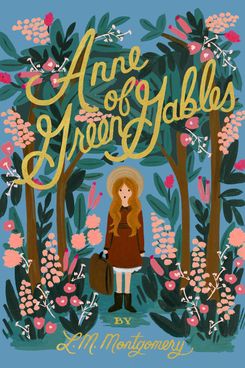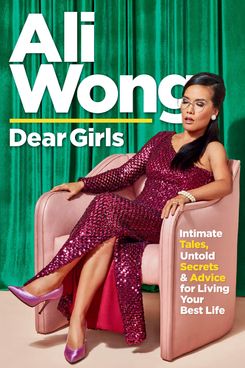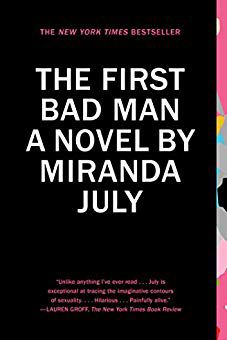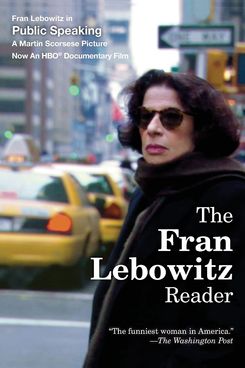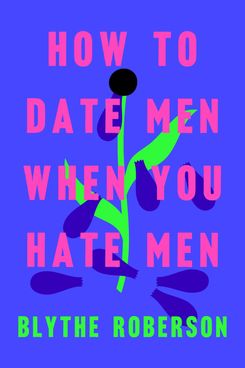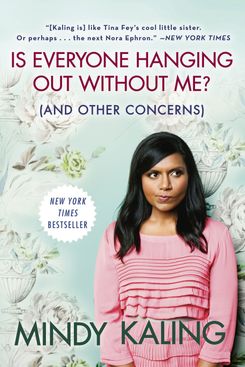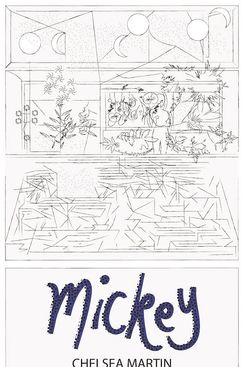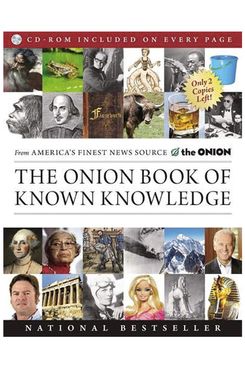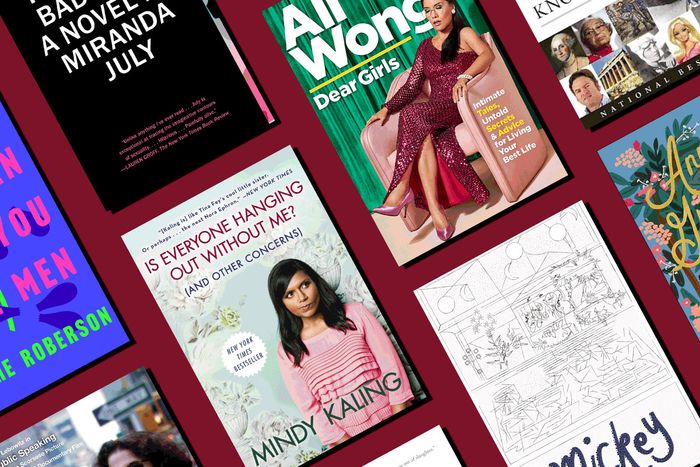
ÔÇ£Summer beach readÔÇØ lists are all well and good, but the roundup a person really wants to know is: Which books do funny people find the funniest?
With this in mind, Vulture spoke with eight comedians, all contributors to Notes From the Bathroom Line: Humor, Art, and Low-grade Panic From 150 of the Funniest Women in Comedy, a modern pantheon selected by Amy Solomon, producer on Silicon Valley and Barry. Notes includes a wide range of comedy genres, spanning Lennon ParhamÔÇÖs holy psalm to Target to Karen CheeÔÇÖs bullet-point list of reasons why her mom is calling. There are also quippy ÔÇ£groupÔÇØ responses to surveys like ÔÇ£WhatÔÇÖs a Song/Album/Movie/Book That an Ex Ruined for You?ÔÇØ or ÔÇ£WhatÔÇÖs a Bad Habit YouÔÇÖll Never Get Rid Of?ÔÇØ (For the latter, per Joanna Calo, a producer for Hacks and BoJack Horseman: ÔÇ£Watching a quick hour of television when youÔÇÖre supposed to be somewhere in 45 minutes.ÔÇØ)
ÔÇ£I live to recommend things to people,ÔÇØ Solomon remarks in NotesÔÇÖ introduction, ÔÇ£namely bookstores, things to do in Chicago, and my amazing allergist in Los Angeles.ÔÇØ Solomon herself grew up smitten with Titters: The First Collection of Humor by Women, a 1976 publication that gathered women comedians into a kind biblical compendium, from Gilda Radner to Phyllis Diller. Solomon updated that ÔÇ£iconic opusÔÇØ approach by assembling an array of sly, wry personalities working today.
We followed up on SolomonÔÇÖs cue and discussed the funny and formative books championed by eight comedians featured in Notes.
Lennon Parham: I was thinking of books that made an impact on me, and surprisingly enough, Anne of Green Gables is one of those books that I have in common with almost all the women IÔÇÖve done comedy with. Like Jessica St. Clair, June Raphael ÔÇö we all were obsessed with Anne of Green Gables when we were tweens. I read all the books, like feverishly. I connected with that feeling ÔÇö like a lot of comedians feel when theyÔÇÖre little ÔÇö that thereÔÇÖs something wrong with you. That youÔÇÖre an outsider.
AnneÔÇÖs a real weirdo. I grew up in a small town in Georgia and felt very ÔÇ£otherÔÇØ early on. I tried to fake my way through it, while still trying to be authentic to my freak flag. So I think I really connected with Anne on that. SheÔÇÖs endlessly romantic, fiercely loyal, sheÔÇÖs an optimist, sheÔÇÖs incredibly intelligent, well-spoken, has a fiery temper, and loves imagination. And you could see she persevered, so maybe youÔÇÖll be okay one day too. Recognizing those traits in a young woman ÔÇö speaking up against adults, calling out a wrongful action, even standing up for yourself ÔÇö that wasnÔÇÖt, especially in the ÔÇÿ80s, being taught. I was getting that information at home, but I wasnÔÇÖt getting it from other adults.
In high school, we did Anne of Green Gables as a stage play, and I played Rachel Lynde. SheÔÇÖs the town gossip. It might have been one of the first straight comedic roles that I got to play. SheÔÇÖs always advising on how Anne should be raised, and Anne really hands her her own ass at one point. Well, multiple times, because sheÔÇÖs butting in where she shouldnÔÇÖt. That juxtaposition of the fierce quality of Anne and also the softness within is really interesting.
Mitra Jouhari: I usually read a lot of contemporary fiction, but I read AliÔÇÖs book last year. It was comforting. I obviously found it very funny, but also I learned a lot about her.
She writes about food really beautifully. I dont identify as someone who is a foodie  I can kind of just eat whatever and not really care. So reading from the perspective of someone who gets a lot of joy and delight from food, why they love it so much, and the respect they have for it  It felt inspiring when I was burnt out on cooking the same three things every day. And the way she writes about her life and her relationship with her husband and her daughters was really funny, but I think beautiful too.
SheÔÇÖs still writing in the voice that people who love her recognize, but whenever you switch to a different medium, youÔÇÖre able to take on different things, or go into more granular detail. You can talk about things you might not talk about onstage. I donÔÇÖt want to say sheÔÇÖs not worrying so much about not being funny, because it is very funny, but comedians who perform live are so used to immediate feedback. So putting something in that book format is difficult, because youÔÇÖre used to thinking This joke is funny, and then saying it onstage, and finding out right away if itÔÇÖs funny. So itÔÇÖs stressful to have to wait.
Lolly Adefope: I find that novels tend to skew toward serious, so finding a hilarious one is such a rare treat. Miranda July writes like no one else ÔÇö her characters are so unique in their absurdity, and she crafts her stories so well that itÔÇÖs like watching the film adaption as you read.
I like when people bring things into the spotlight that weÔÇÖre aware of but maybe havenÔÇÖt seen the humor in yet. I think Miranda July does that: She takes behaviors that on paper might seem pathetic or depressing, like [protagonist] Cheryl eating straight out of the pan, and makes them hilarious. She describes the kind of detail that I notice in real life and never expect to see in literature. ThatÔÇÖs part of what she does so well ÔÇö invites the reader in through these seemingly tiny yet precise moments that then stay with you.
This was the first thing by Miranda July that IÔÇÖd read or seen, which might be why it blew me away so much. I had a vague idea in my head that she was an arty, cool maker of arty, cool things, but didnÔÇÖt know much more than that. I think discussions of whether her work is ÔÇ£quirkyÔÇØ remind me of discussions about ÔÇ£whether women can be funnyÔÇØ ÔÇö they center slightly sexist ideas and approaches rather than appreciate the work on its own merit.
Sasheer Zamata: I love her takes and grievances with the mundane parts of life. I was inspired to get this book because I watched clips online of her HBO show Public Speaking and thought she was insanely funny. She speaks as if sheÔÇÖs delivering a stand-up set. So when Pretend ItÔÇÖs a City came out on Netflix, I of course devoured that immediately. I aspire to complain as well as she does.
IÔÇÖm not sure when I first read FranÔÇÖs work, but I know I was living in New York at the time, which seems appropriate. She has an incredible way of portraying a love-hate relationship with the city, and I could definitely relate to that after about ten years of living there. FranÔÇÖs distaste for people who donÔÇÖt know how to walk in New York definitely resonates with me. Yes, New York is amazing to look at, but you can see more of it if you stop looking up and actually walk to wherever the hell youÔÇÖre going.
SheÔÇÖs so good at highlighting details that many people would gloss over. Like, she made a list of obligations (dropping off laundry, going to parties, etc.) and called them ÔÇ£Modern Sports.ÔÇØ I would love to hear her thoughts on greeting someone in a post-COVID world. I imagine she never liked hugging someone when meeting them, and would probably prefer that not come back. And a kiss on the cheek would most likely be out of the question.
Karen Chee: Full disclosure: Blythe is a very good friend of mine. I read it because sheÔÇÖs a friend of mine, but then I read it and was like, This is so good. IÔÇÖm also a fan now. ItÔÇÖs legitimately exciting when your friend makes something that youÔÇÖre really proud of. I imagine the topic of the book could have gone very serious, because it is about navigating dating as a straight cis woman and trying to date men in a very patriarchal society. But she takes all these really fun, whimsical turns and has so many good jokes packed into every page that it is just a true joy reading it.
This is my dream SparkNotes: the philosophy of dating. She does it without being pretentious, which I ultimately appreciate because if IÔÇÖm reading a book thatÔÇÖs pretentious I am lost. She has such a good ÔÇ£performerÔÇØ voice, and is able to translate that perfectly to the page. ItÔÇÖs like taking comedy and setting it to a different rhythm.
The book has a lot of wholesome comedy ÔÇö or, comedy about wholesome things. ThereÔÇÖs a piece in there about how Tom Hanks is the actual villain in YouÔÇÖve Got Mail. (Would they have actually been happy together?! Like, he put Meg Ryan out of business! Her momÔÇÖs store!) There are lots of really absurd, silly pieces scattered throughout the book also, so itÔÇÖs fun.
Dating is so nebulous that I always feel kind of embarrassed talking about it to people ÔÇö unless theyÔÇÖre my close friends ÔÇö because it sounds like IÔÇÖm overanalyzing something silly. But in the book, it feels like No, itÔÇÖs okay to think about this. ItÔÇÖs not frivolous by nature. If itÔÇÖs nebulous, itÔÇÖs because someone is making a mistake.
Meg Stalter: I read it a long time ago, like around 2014. ThatÔÇÖs when I started comedy ÔÇö like really started. I was like OMG, this is the life I want to have ÔÇö like her writing a play with her friend, and being on The Office and fighting for her material in the writersÔÇÖ room. At that time, I was going to Barnes & Noble and getting anything I could about comedy: Tina FeyÔÇÖs book, that big SNL book, everything I could.
Mindy writes like sheÔÇÖs one of your friends. I became even more of a fan while reading it. I was nannying all day and doing open mics at night. IÔÇÖm sure it would be fun to go back and read now, but I really needed it at the time. Even though my stuff is so different than hers, I was able to recognize: ThatÔÇÖs what I wanna do with my stuff. Before I knew how to do anything, I wanted to do everything. At that time, I didnÔÇÖt really have my voice yet.
The stuff I do is pretty absurd. It would make sense if I chose John Waters or something. But Mindy is appealing to my real-life self. IÔÇÖm painfully earnest in real life ÔÇö like ÔÇ£write poetryÔÇØ and ÔÇ£cry at everythingÔÇØ earnest. That book had a lasting effect on me, because I didnÔÇÖt know at the time that you could make a career out of being a comedian. I was really young and I was like, How are people doing this?! How do you get a writerÔÇÖs job? It was watching somebody do what I wanted to do. And then later, I figured out how to write my own crazy stuff. As this nanny with no money, I couldnÔÇÖt move to New York, I couldnÔÇÖt move to L.A., but I was like, If she can do that, I can do that. It was a look into the future. You can make your own way.
Catherine Cohen: Everything about my life is humiliating and embarrassing and just cringe. But when I read something like this, it feels so honest and fresh, and almost funny by accident. I just fell in love with it. ItÔÇÖs this tale about her breakup and, in between, an ÔÇ£art showÔÇØ with titles of the pieces sheÔÇÖs doing.
Do you remember Lenny Letter, the thing that Lena Dunham did? They would do such great excerpts of female writers. They showed an excerpt of this or maybe some poetry sheÔÇÖd written in around 2016, and I was like, This is so funny. This unlike anything IÔÇÖve read. It just felt so immediate and accessible. I love anything thatÔÇÖs like these little prose poems ÔÇö little tweets, almost ÔÇö that form the novella.
When I read it, it was exactly what I was going through at the time: dating around, trying to be some kind of artist, trying to figure out if youÔÇÖre terrible. She just makes you feel so seen. I felt the way I feel when I discover something IÔÇÖm obsessed with: Oh, itÔÇÖs allowed to be like this?! Oh, weÔÇÖre allowed to write how we speak?! It feels like youÔÇÖre texting with a friend who happens to be very insightful and bizarre.
She throws in these funny things ÔÇö she gets intimate and reveals these darker truths ÔÇö and then quickly takes it back with a joke. So sheÔÇÖs like, IÔÇÖm not letting you in that much. ThatÔÇÖs a fun device. The way this is formatted is so easy to pick up ÔÇö just pick a paragraph and you can immediately be transported. ItÔÇÖs comforting because itÔÇÖs true and itÔÇÖs true because itÔÇÖs funny. ItÔÇÖs vulnerable too, and that makes it even funnier.
Ziwe Fumudoh: The Onion was the first job that ever paid me to write jokes. That experience was so formative for me as a writer, because it really taught me the value of output and not being precious with your jokes. I started as an unpaid intern there, for a year and a half, in 2013. At the end of my internship, the video staff gave me this. I read it front to back.
You have literally 240 pages by all these brilliant writers collaborating to make a satirical encyclopedia. I find the OnionÔÇÖs voice to be so sharp, so funny. How do you make light of really serious issues and sort of punch up at people in power? They really take shots at everyone. No one is spared from the barrage of scorn that the writers have for general living beings. As a comedy writer and performer and producer, it really expands my world in terms of what I can make fun of, and also how I can make fun of myself.
The strongest aspect is that the entire page is full of jokes. This is a very large book, and every single aspect of it is a joke. Maybe IÔÇÖm cheap ÔÇö I like a book thatÔÇÖs like ÔÇ£buy one, get 1,800 different things.ÔÇØ A lot of it is really offensive, honestly! They inherently push boundaries and sometimes cross the line. But IÔÇÖm a satirical writer myself, so I really value the wide breadth.
ThereÔÇÖs this one joke about Joe Biden, in 2010: ÔÇ£Joe Biden was asked to take down risqu├® photos of Loni Anderson from the Vice-Presidential WebsiteÔÇØ ÔÇö and so, you know, the Onion was kind of the genesis of ÔÇ£Joe Biden as a folksy hero.ÔÇØ A lot of these jokes show a really deep understanding of American pop culture. And to watch inside jokes amongst these really tight writers in Chicago kind of transform into this national bit ÔǪ It shows the importance of media and of comedy writing. The Onion was at the forefront of making fun of these domestic and foreign policies.


